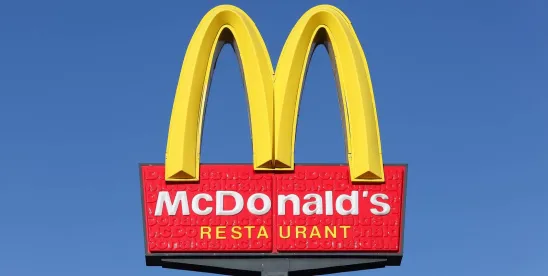In two cases filed in federal courts, workers at retail fast-food chains McDonald’s and Wendy’s are taking advantage of the new protections granted them by the 2022 Providing Urgent Maternal Protections for Nursing Mothers Act (PUMP Act). As has been previously covered in more depth, the PUMP Act requires employers to provide “reasonable break time” to nearly all exempt and nonexempt employees to allow them to express breast milk in a private space functional for such purpose, that is not a bathroom. As is relevant to the two cases, the law also requires these spaces to be “shielded from view,” “free from intrusion of coworkers and the public,” and is “available each time” that an employee needs to pump. In the complaints, filed on behalf of similarly situated classes, the plaintiffs’ claimed that McDonald’s, Wendy’s, and their respective franchisees, failed to provide adequate breaks and appropriate spaces to express breast milk, as required by the PUMP Act.
On February 1, 2024, named-Plaintiff Amanda Bazzett filed a complaint on behalf of Wendy’s employees who were denied break time and an appropriate space to express breast milk, since the PUMP Act’s effective date in December 2022. On February 14, 2024, Plaintiffs Kathleen R. Faber and Lexis Mays filed their suit on behalf of McDonald’s employees who they claim were similarly denied appropriate spaces to express, as well as adequate break time. Both suits seek injunctive relief, equitable and punitive damages, as well as attorneys’ fees against the fast-food chains and their franchisees.
The twin cases offer a lesson for businesses on what measures may not comply with the PUMP Act, and thus how to avoid potential complaints from employees, or scrutiny from the Department of Labor’s Wage & Hour Division. In her complaint, Bazzett claimed she was forced to pump in an open-spaced “crew room,” during which time other employees came in and out of the room. Faber claimed that the general manager at her Kansas McDonald’s required her to pump in a stock room during some shifts, and when male employees worked with her, in the bathroom of the restaurant. She also claimed that she did not have sufficient time to pump and had “no break at all” for half her shifts. Mays claims she was forced to pump in a back office with no door, and that she was denied a break on some shifts. In both suits, the complaints allege that defendants could have easily provided private spaces through the use of temporary pod-like units for relatively low cost—which appears to be an attempt to head off an “undue burden” argument potentially available to the franchisees under the Act.
Notably unique to these cases are allegations that the franchisors and franchisees are jointly liable due to requirements in Wendy’s and McDonald’s franchisee agreements and guidelines, and because the fast-food giants dictated the layout of the restaurants. Similar theories have failed because courts found an insufficient level of control by the corporate franchisor, but the recent push by federal agencies expand the definition of “joint employers” looms in the background.
For now, employers of both exempt and non-exempt workers should ensure that managers are review the detailed guidance on the PUMP Act provided by the Wage & Hour Division, and are provided specific instruction on what a “private space” means in the context of the Act.





 />i
/>i

